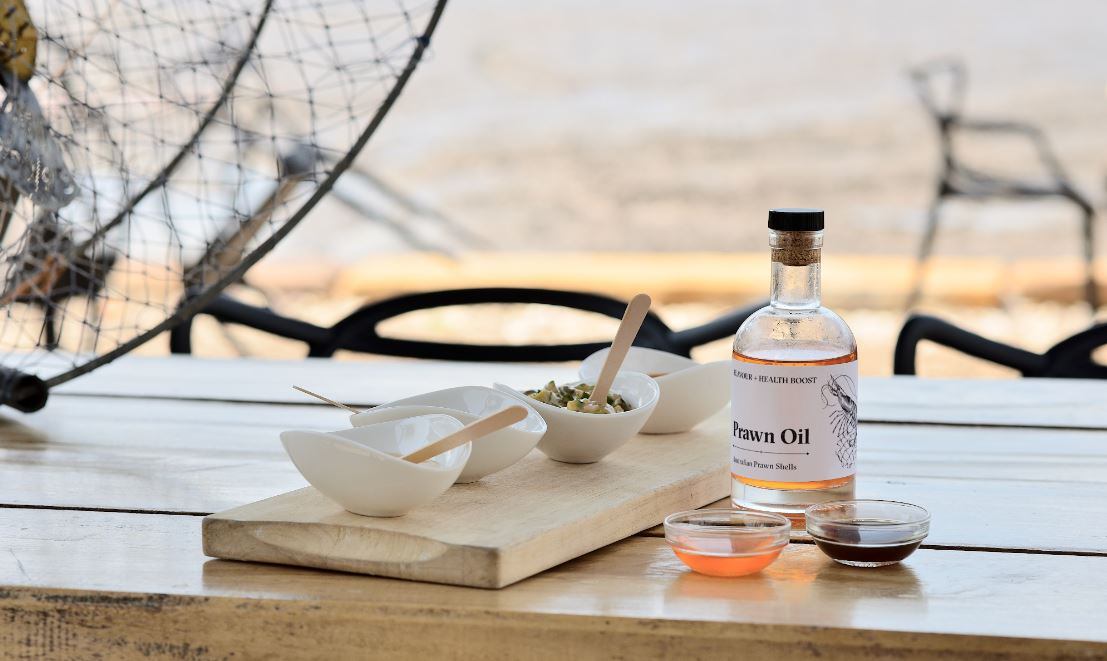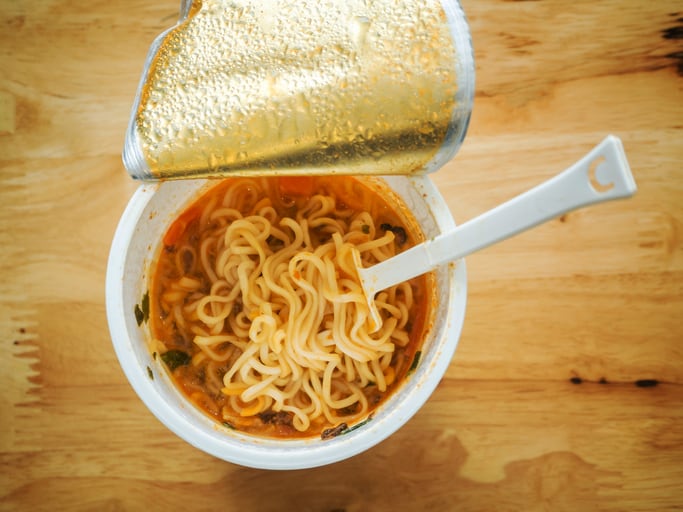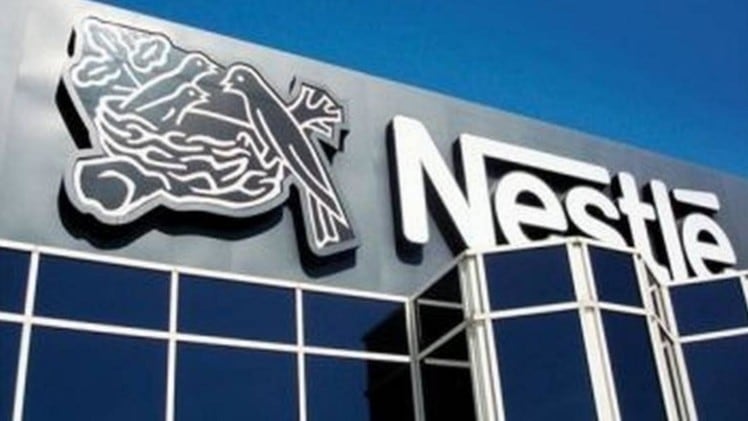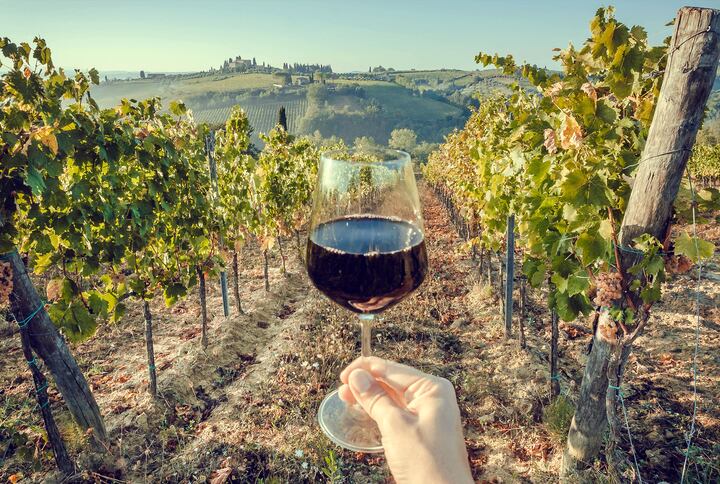The start-up which was founded three months ago, was born out of the co-founders passion for sustainability.
Prawn oil is the company’s first product, using the by-products of wild-caught prawns from Perth-based Austral Fisheries.
According to Seeweedery’s co-founder Natalie Kalinova, Austral Fisheries annual prawn processing waste volume is approximately 100 tonnes. Austral Fisheries is a MSC certified, carbon neutral fishery specialising in fish and prawns.
In Australia, about 20,000 tonnes (AU$300m/US$211m) of wild caught prawns are harvested yearly, which does not include farmed or aquaculture.
Kalinova said this represents a huge opportunity to turn the discarded prawn waste into value-added products.
She told FoodNavigator-Asia that the company replicates culinary techniques such as heat to extract the flavours and nutrients of the prawn shells, rather than using chemicals.
Its prawn oil contains extracts from prawn shells as well as vegetable oil. With a gentle and mild taste profile, it can be used for cooking or dressings.
"We decided to use Australian rapeseed/canola oil as the most neutral oil to showcase the pure prawn flavour."
In terms of nutritional value, Kalinova explained that the prawn oil contained phospholipid, the best form of omega-3 fatty acid which provides the maximum absorption rate.
In addition, it contains astaxanthin, often known as a super antioxidant. Research has shown astaxanthin’s beneficial effects on heart health, joint pain, skin health, anti-cancer and fatigue.
Recently, it successfully completed a crowdfunding campaign to pre-sell AU$25,000 worth of products in 30-days, which Kalinova said was challenging during the pandemic period because they were unable to conduct consumer testing.
It is starting production, with the first batch (250kg of oil) scheduled for November, mainly selling direct to consumers through its website as well as food service.
The crowdfunding campaign was part of Seeweedery’s participation in the Seafood for Good program, also run by Austral Fisheries which aims to fill the gap for sustainable seafood.
The firm was selected as one of the finalists and offered a AU$25,000 (US$17,600) non-equity funding as well as support from Austral Fisheries as a supplier to launch their product if the crowdfunding target was achieved.
While funds were one thing, Kalinova said the crowdfunding campaign would also provide validation for its product, “to see if there is a market for prawn oil among consumers.”
Kalinova added that educating consumers on this locally produced sustainable new product was another challenge.
The prawn oil is undergoing nutritional testing now, although Kalinova was quick to add that nutrient levels would vary by batch since they were using wild caught prawn and not prawns grown in a controlled environment.
Shellfish potential
Besides prawn oil, the company has also developed a vinegar made from seaweed.
According to Kalinova, the seaweed industry was still relatively new to Australia, and the firm hopes to partner local farmers to develop more products.
The company is also looking into shellfish such as lobsters and clams to transform into oils, as well as fishes for fermented sauces.
“Currently, the prawn oil offers a taste palate similar to the French cuisine. We hope to develop different oils to cater to various palates.”
Kalinova said there were many opportunities in seafood waste especially since “Australian seafood has good reputation around the world”, but it was not the easiest to work with because of their perishable nature.
She added that the challenge was in obtaining the prawn shells or any other seafood waste in precinct conditions before it goes through any form of treatment including chemicals or freezing.
Kalinova told us she hopes to work with more partners such as Austral Fisheries to process their seafood waste into more value-added products and has plans to expand its business to B2B and eventually internationally.




